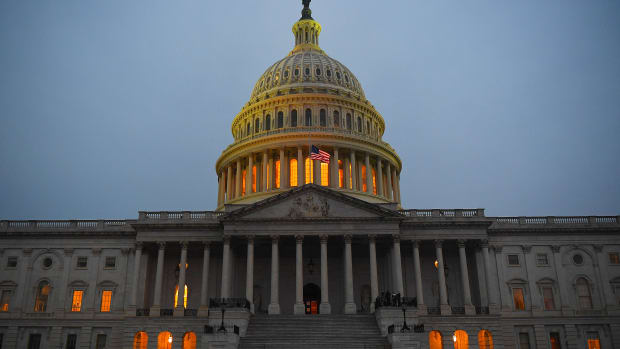New on Sports Illustrated: Legislation Introduced Seeking to Provide Collective Bargaining Rights to College Athletes
Legislation was introduced on Thursday seeking to provide collective bargaining rights to college athletes.

U.S. senators Chris Murphy (D-Conn.) and Bernie Sanders (I-Vt.) introduced legislation on Thursday seeking to provide collective bargaining rights to college athletes.
Among other components of the proposed legislation, the
College Athlete Right to Organize Act would amend the National Labor Relations Act and allow athletes to collectively bargain at any college, regardless of state laws. As part of the legislation, college athletes would also be deemed employees and schools would be employers.“Big time college sports haven’t been ‘amateur’ for a long time, and the NCAA has long denied its players economic and bargaining rights while treating them like commodities," Murphy said in a statement. “That’s why I’m introducing the College Athlete Right to Organize Act, which finally recognizes college athletes as employees and allows athletes to collectively bargain with their colleges and across conferences. Having the right to do so will help athletes get the pay and protections they deserve and forces the NCAA to treat them as equals rather than second-class citizens. It’s a civil rights issue, and a matter of basic fairness.”
A companion bill was introduced in the U.S. House of Representatives by Reps. Jamaal Bowman (D-N.Y.), Andy Levin (D-Mich.) and Lori Trahan (D-MA.).
The introduction of the legislation comes as questions about how college athletes can financially benefit from their name, image and likeness become more prevalent.
Last week, Sports Illustrated's Ross Dellenger reported that a group of U.S. senators, led by Sen. Maria Cantwell (D-Wash.), are in deep negotiations on bipartisan legislation that "could help college sports avoid a chaotic quandary: schools and their athletes operating under differing state laws related to NIL."
“We are closer than we’ve ever been,” one Congressional source told Sports Illustrated. “But as you know, you can be close without getting across the finish line.”
The NCAA appears to be waiting to make pass its NIL policies until the ruling in the Supreme Court's NCAA v. Alston case, which focuses on whether the NCAA’s eligibility rules violate federal antitrust law. Nevertheless, lawmakers appear to be committed to re-evaluating the topic of college athlete compensation.
“Here’s the bottom line: legislation allowing college athletes to sign endorsement deals is already becoming law at the state level, whether the NCAA wants it or not,” Murphy said in a recent statement to SI. “The NCAA says the sky will fall if these laws go into effect—let's see if that's true.”
More College Sports Coverage:

Comments
Post a Comment